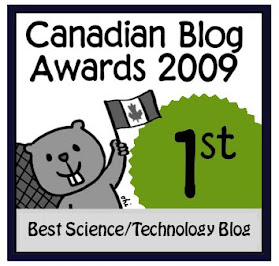 I feel cheated.
I feel cheated.When I heard all the buzz about a recent Canadian study showing that identical twins don’t share the same DNA, I thought: there’s this week’s blog post. Easy peasy. I imagined the title of the article was probably something like “Identical twins don’t share the same DNA” or, even better: “Just kidding: everybody is unique after all”. Instead, to give you the low-down on this moderately exciting finding, I had to read through a paper called “Ontogenetic de novo copy number variations (CNVs) as a source of genetic individuality: studies on two families with MZD twins for schizophrenia”. So don’t ever say that I don’t love you.
The finding is very straightforward and fairly intriguing, but before I dish out the details, I have to remind you about two concepts you may not have heard since high school (but rejoice: it's sex-related): meiosis and mitosis. Meiosis is what happens when one cell with two copies of each chromosome divides to produce gametes – in our case, sperm cells and egg cells, each with a single copy of chromosomes. This process is necessary for sexual reproduction. Mitosis is what happens when one cell generates two separate sets of chromosomes and then divides, leaving each daughter cell identical to the mother cell. This process is necessary during early development.
Now onto the article: the researchers were on the hunt for genes that are involved in schizophrenia, and as is often the case in these types of studies, they were looking at identical twins. The idea is that diseases can arise from genes (for example, Huntington’s disease), from the environment (for example, certain forms of cancer), or from a combination of both (for example, certain forms of Alzheimer’s disease). If identical twins have the same genes but only one of them gets a disease (say, schizophrenia), then researchers typically rule out genetics as the cause and examine what differences in the environment of the two twins may have caused the disease. See how that works?
In this study, the researchers were particularly interested in a DNA alteration called “copy number variations”. You see, DNA is never perfect, and sometimes cells have abnormal copies of big chunks of your DNA. These copy number variations can be harmless, but they can also cause certain diseases, so geneticists are paying close attention to them. In any case, the researchers found that supposedly identical twins had different sets of copy number variations when compared with their parents (meaning they didn’t inherit these DNA alterations from their parents). The cool thing about this finding is that the researchers can now determine when the alteration happened depending on who has the different copy number variation. If both twins have the same copy number variation, then we know it originated during meiosis (when the parents were generating eggs and sperm). If only one twin has the variation, then we know it originated during mitosis (during development).
While the article doesn’t focus all that much on the fact that identical twins have the same DNA (I hate to say it, but we kind of already knew that), this tidbit of information is relevant in two ways. First, it’s going to change how researchers carry out twin studies, because we can no longer assume that identical twins have the same DNA (as if we needed to complicate things further…). Second, this finding might lead to a new way of thinking about genetic diseases.
So there you have it: we are all unique individuals after all. Up next: your parents aren’t who you think they are. Your “parents” are really bug-eyed aliens from Neptune! (as always, bonus points for the correct reference in the comments…)
Reference: Ontogenetic de novo copy number variations (CNVs) as a source of genetic individuality: studies on two families with MZD twins for schizophrenia. (2011) Maiti S et al. PLoS ONE, 6(3):1-13.



5 Responses to “But what about clones?”
Ah, Calvin and Hobbes, I love thee so.
Bonus points for you. One day I will tally them all, I promise.
Great post. This is the exact kind of explanation of new information I love about your site.
Thanks so much, veach!
Maybe I should write more late at night when I haven't had any sleep in weeks. :)
That was a refreshing discussion. I guess even from our siblings we are different from them. As individual we are unique body and health.
Post a Comment